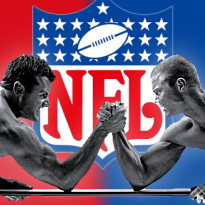 Just days after Atlantic City’s casinos were given the official nod to offer mobile gaming on casino property, a New Jersey state Senate committee has okayed a similar mobile measure for the state’s racetracks. Bill S2236 would require all wagering and payout of winnings to take place on racetrack grounds, but at least punters wouldn’t have to leave their seats in the grandstand and waddle all the way to the wicket to have a flutter. The spokeswoman for the Standardbred Breeders and Owners Association of New Jersey suggested (without much evidence) the mobile option will help broaden racing’s appeal with a younger tech-savvy generation of bettors. The bill, which has already been approved by the state Assembly, now heads to the full Senate for debate.
Just days after Atlantic City’s casinos were given the official nod to offer mobile gaming on casino property, a New Jersey state Senate committee has okayed a similar mobile measure for the state’s racetracks. Bill S2236 would require all wagering and payout of winnings to take place on racetrack grounds, but at least punters wouldn’t have to leave their seats in the grandstand and waddle all the way to the wicket to have a flutter. The spokeswoman for the Standardbred Breeders and Owners Association of New Jersey suggested (without much evidence) the mobile option will help broaden racing’s appeal with a younger tech-savvy generation of bettors. The bill, which has already been approved by the state Assembly, now heads to the full Senate for debate.
There’s been more movement on New Jersey’s legal battle with the major North American professional sports leagues and the NCAA over the state’s plan to offer legal sports betting to its residents. The leagues have bolstered their legal dream team with the addition of Paul Clement, former US Solicitor General under President George W. Bush. Ironically, Clement’s predecessor in that role was none other than Theodore Olson, who is representing New Jersey in this fight. Oh, it’s on, bitches…
On Wednesday, the state filed a reply brief addressing the leagues’ latest arguments as to why New Jersey’s sports betting bid threatens to end life as we know it on this planet. New Jersey still doesn’t accept that the leagues have the standing to intervene in this matter, claiming the leagues have failed to identify any specific ‘injury’ they might suffer from New Jersey getting its gamble on. New Jersey says the leagues’ claim that betting would change how fans “perceive” the games is simply “too abstract” to constitute an injury-in-fact suffered by the leagues themselves.
The state rejects the notion that adding regulated New Jersey betting to the “massive markets in Nevada and other countries and the even larger, ubiquitous illegal market” would somehow negatively affect a game’s integrity, describing this argument as “a contrivance of a legal brief, not a ‘realistic threat.’” The state also pointed out that when the PASPA sports betting prohibition was enacted in 1992, New Jersey was given a year in which to pass the relevant legislation that would have allowed it the same sports betting rights as Nevada. The fact that New Jersey failed to act in the required time period is irrelevant; clearly, federal legislators (and the leagues themselves) didn’t appear to believe at the time that New Jersey betting posed an existential threat.
Earlier this month, the leagues had rubbished New Jersey’s argument that betting would have no impact on the games’ integrity, pointing out that the state’s own legislation prohibited betting on college games involving a team from New Jersey. The leagues claimed this made New Jersey a bunch of hypocrites. In response, New Jersey revealed that the NCAA itself asked to have that stipulation included in the legislation, and the state’s “effort to accommodate the NCAA cannot be transformed into a concession that Leagues’ claims of harm are grounded in reality.”
The state also dismissed the leagues’ claim that the courts must defer to “Congress’ eminently rational determination” that any increase in sports betting would do harm to the leagues. The state points out that the quote in question is nowhere to be found in PASPA, but is confined to a Senate committee report on PASPA, meaning ‘Congress’ never actually debated, voted on or (possibly) read this document, thus it “does not constitute a finding of ‘Congress.’”
Early in the brief, New Jersey says the leagues “called an audible” in their latest filing by dropping any reference to the alleged harm sports betting would inflict on their “reputation” or “goodwill.” At the conclusion of the brief, New Jersey argues that the leagues’ “increasingly vague and opaque allegations of changed perceptions among fans” that would result from New Jersey betting is simply “an effort to avoid discovery, which the Leagues know would refute any claims of actual injury or loss.”